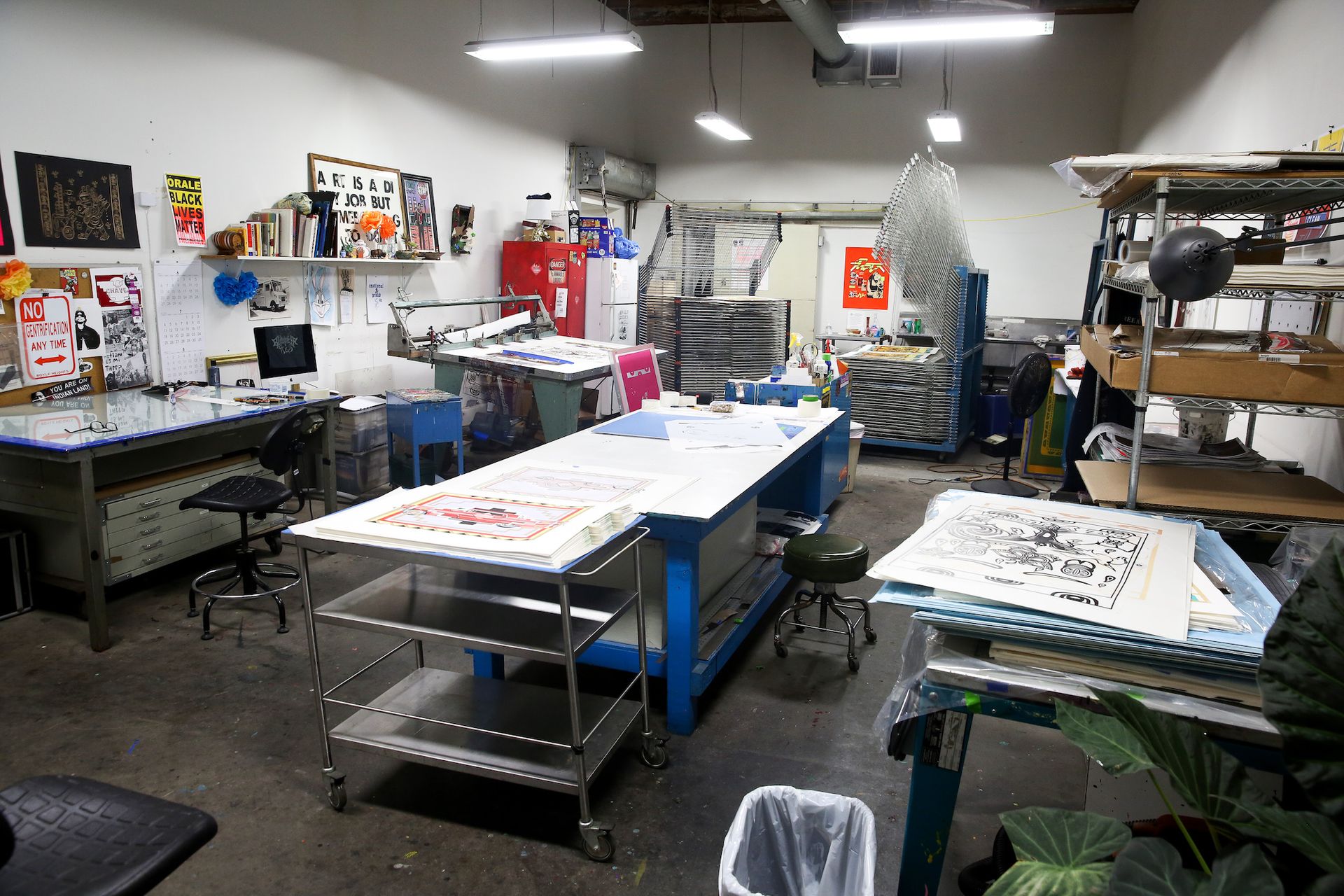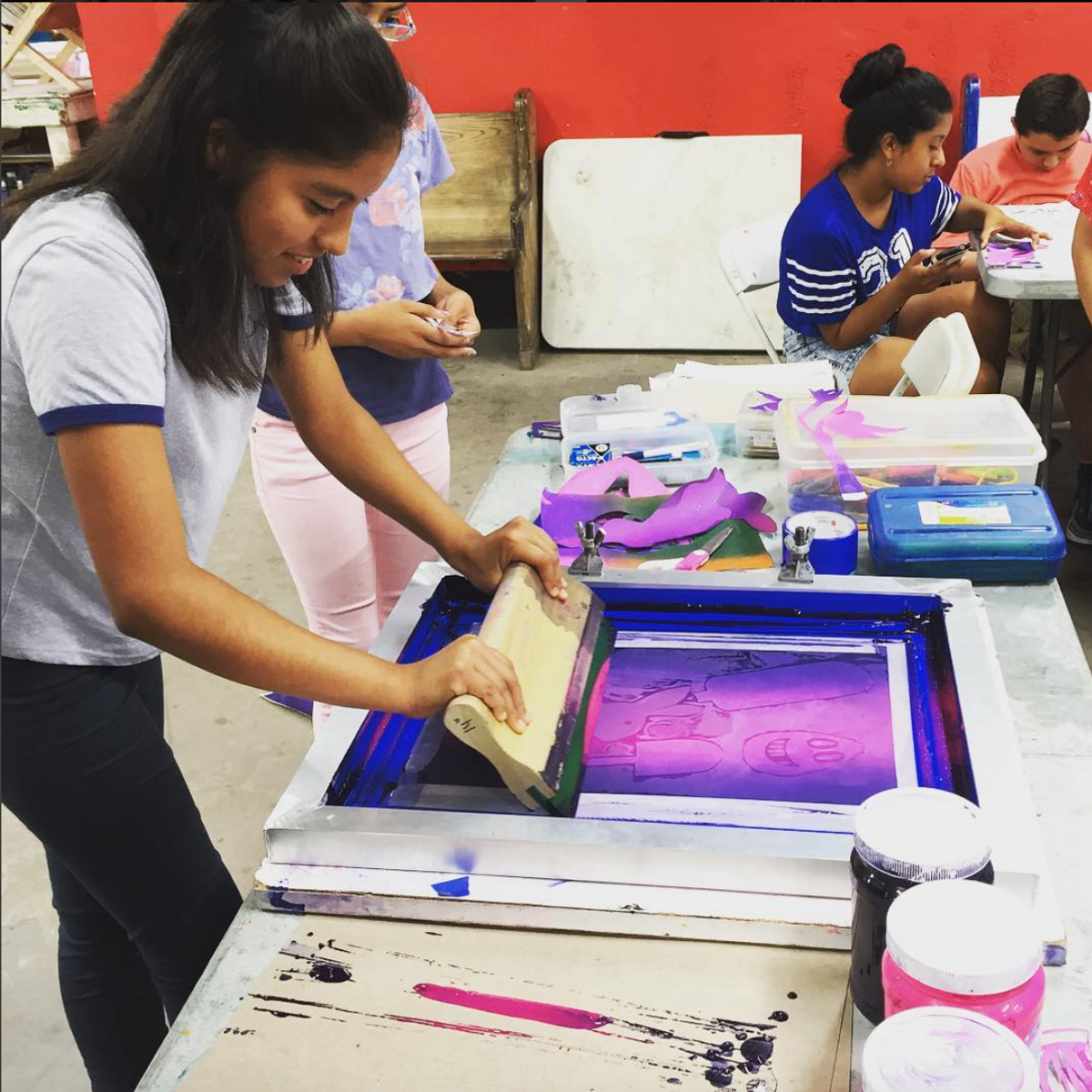In 1970, a small group of artists started meeting and making work in the East Los Angeles garage of a Catholic nun, Sister Karen Boccalero, an artist herself. She was also, in her way, an activist, and along with artists Carlos Bueno, Antonio Ibáñez and Frank Hernández, she believed that everyone should have access to artmaking in order to express who they and their community were. It was part of a profound political and cultural awakening fostered by the Chicano movement. The artists later found a space in Boyle Heights and, in 1973, established Self Help Graphics & Art (SHG), with a focus on printmaking. To reach a wider population, they turned an old truck into the Barrio Mobile Art Studio and took art education on the road, teaching such techniques as silkscreen, linocut, drypoint and monotype.
This year, SHG is celebrating its 50th anniversary with a $14.9m capital campaign to renovate the building near the Downtown Arts District that the organisation has called home since 2011—and whose mortgage it paid off last year. “That was a really game-changing moment for Self Help Graphics,” says Betty Avila, SHG’s executive director, “having been around for almost 50 years, to be able to say that the organisation finally has full agency over its home.”
A former seafood packing plant, the building was not glamorous when SHG first moved in, but it offered 13,000 sq. ft of space and ample parking. The renovations will cost $10.1m, with the remaining $4.8m for property acquisition and reserves. Avila says SHG has already raised 85% of the total, including $4m from the state of California and $1m from MacKenzie Scott, the philanthropist and novelist. Construction is expected to take 18 to 24 months. The renovation has been designed by architectural firm NAC, based nearby in Chinatown, and the lead architect for the project is a Chicana, Leticia Ochoa.

Printmaking facilities at Self Help Graphics & Art in Los Angeles Courtesy Self Help Graphics & Art
“We’re in a building that was set up as a refrigerator,” Avila says of the 110-year-old building. The coming upgrades include better climate control systems, updated studio and gallery spaces, storage for SHG’s collection and an overhaul of the outdoor areas. “The concrete parking lot is going to be transformed so that it has more green space, shading and a garden.”
Avila will step down at the end of June, shortly after the renovations begin and following eight years leading SHG. “It’s a good moment to pass it on,” she says. “Having done so much and done it with always limited resources.”
One artist whose education and career were nurtured at SHG is Linda Vallejo. In 1976, while still a college student, she started working part-time for the mobile studio. Later she taught workshops and was an artist in residence. “In the late 1970s it was really about a cultural awakening through the arts,” Vallejo says. She learned about her Mexican American heritage working there, helping with research on the Day of the Day festival that led to its revival in Los Angeles. Today, the centre has two months of programming leading up to the popular November celebration.
Vallejo believes the art coming out of SHG is better than ever. “They really have kept up with and are actually creating the trends,” she says, noting how politically savvy much of the art is—embracing not only Mexican American or Chicano identity but also feminist, Indigenous and environmental concerns.


